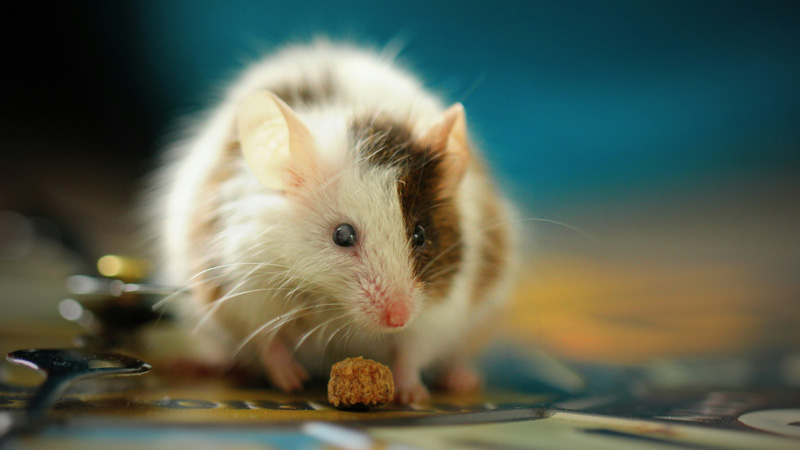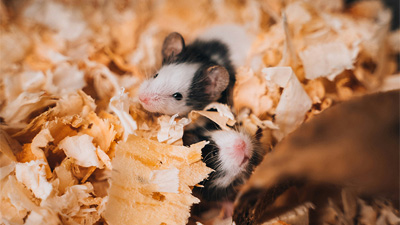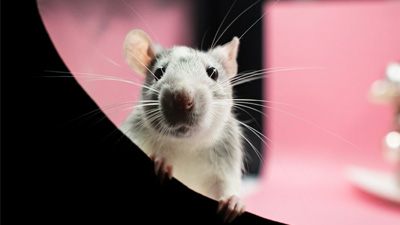Can Mice Make Allergies Worse?

Photo by Sandy Millar on Unsplash
For many people, allergies can be a significant source of discomfort and disruption in daily life. Allergies are caused by the immune system's reaction to certain substances, known as allergens, and can manifest in various ways, such as sneezing, itching, or difficulty breathing. While allergies are commonly associated with substances like pollen or dust mites, some individuals may wonder if mice can also exacerbate their allergic reactions.
In this article, we will explore the relationship between mice and allergies, examining the potential allergens they produce and the ways in which they can affect individuals who are susceptible to allergies.
Understanding Allergens and the Role of Mice
What Are Allergens?
Allergens are typically harmless substances that can trigger an allergic response in certain individuals. These substances may include pollen, pet dander, dust mites, or mold spores. When a person with allergies comes into contact with an allergen, their immune system mistakenly detects it as a threat and releases chemicals like histamines, resulting in allergic symptoms.
Are There Allergens Associated with Mice?
Mice produce various substances that can potentially act as allergens. The two main allergenic components associated with mice are their urine and dander (dead skin flakes), both of which can become airborne. Additionally, mouse saliva and droppings can also contain allergenic proteins that may trigger allergic reactions in susceptible individuals. These allergens can be present in both wild mice and pet mice, although the levels may differ depending on the environment.
The Impact of Mouse Allergens on Allergic Reactions
Mouse Allergens and Respiratory Issues
For individuals with respiratory allergies, exposure to mouse allergens can lead to symptoms such as coughing, wheezing, shortness of breath, and a tight chest. When inhaled, mouse allergens can irritate the airways, potentially triggering an allergic asthma attack or worsening existing respiratory conditions.
Mouse Allergens and Skin Irritation
In addition to respiratory symptoms, mouse allergens may also cause skin irritation in sensitive individuals. Direct contact with mouse urine or dander can result in redness, itching, or hives on the skin. This is especially relevant for individuals who handle mice frequently or come into close contact with their bedding or habitat.
Other Potential Allergenic Effects
While respiratory issues and skin irritation are the most commonly reported effects of mouse allergens, some individuals may experience eye irritation, nasal congestion, or gastrointestinal symptoms as a result of mouse allergen exposure. These symptoms can vary in severity and may depend on the individual's immune system response.
Reducing Mouse Allergen Exposure
Maintaining a Clean Living Environment
One of the most effective ways to reduce exposure to mouse allergens is to maintain a clean and hygienic living environment. Regular cleaning, vacuuming, and dusting can help remove allergens that may have settled on surfaces. Paying particular attention to areas where mice may have been present, such as corners, cracks, or hiding spots, can minimize allergen accumulation.
Proper Handling and Hygiene Measures
If you own pet mice, proper handling techniques and hygiene measures are essential to reduce allergen exposure. Washing hands thoroughly after handling mice, their bedding, or their habitat can help remove allergens from the skin. Wearing gloves and a mask while cleaning the cage or handling bedding can also be beneficial in minimizing direct contact with allergenic substances.
Minimizing Mouse Presence
To reduce exposure to mouse allergens, it may be necessary to address the presence of mice in the household. If there is an infestation or regular sightings of mice, it is advisable to consult a professional pest control service. Taking measures to block entry points and remove factors that attract mice, such as food sources, can help prevent their presence in the first place.
Air Filtration and Ventilation
Using high-efficiency particulate air (HEPA) filters in air purifiers or vacuum cleaners can help trap and remove airborne allergens, including mouse allergens. Proper ventilation in the living space can also help improve indoor air quality by reducing allergen concentrations.
Seeking Medical Advice
If allergies to mouse allergens are causing significant discomfort or interfering with daily life, it is advisable to seek medical advice from an allergist or immunologist. These specialists can perform specific tests to determine if mouse allergies are present and provide guidance on managing symptoms and reducing allergen exposure.
Conclusion
While mice may not be an obvious allergen source like pollen or dust mites, they can contribute to allergic reactions in susceptible individuals. Mouse urine, dander, droppings, and saliva contain allergenic proteins that can trigger respiratory issues, skin irritation, and other allergic symptoms. Managing mouse allergen exposure involves maintaining a clean living environment, proper handling and hygiene measures, minimizing mouse presence, and employing air filtration and ventilation techniques. Seeking medical advice can also be beneficial in managing mouse-related allergies.
It is crucial to note that each individual's sensitivity to mouse allergens may vary, and not everyone will experience allergic reactions. However, for those who do, taking appropriate measures to reduce exposure can help alleviate symptoms and improve overall well-being.
You May Also Like
 Pet MousePet Mice vs. Rats: What Is the Difference?
Pet MousePet Mice vs. Rats: What Is the Difference? Pet MouseHow Long Do House Mice Live as Pets?
Pet MouseHow Long Do House Mice Live as Pets? Pet RatsExploring The 4 Largest Pet Rat Breeds
Pet RatsExploring The 4 Largest Pet Rat Breeds Pet RatsWhat is the Best Number of Rats to Have as a Pet?
Pet RatsWhat is the Best Number of Rats to Have as a Pet? Pet RatsAre Rats a Good Pet? Exploring the Benefits of Pet Rats
Pet RatsAre Rats a Good Pet? Exploring the Benefits of Pet Rats Help & AdviceExploring 10 Easiest Exotic Pets to Take Care Of
Help & AdviceExploring 10 Easiest Exotic Pets to Take Care Of